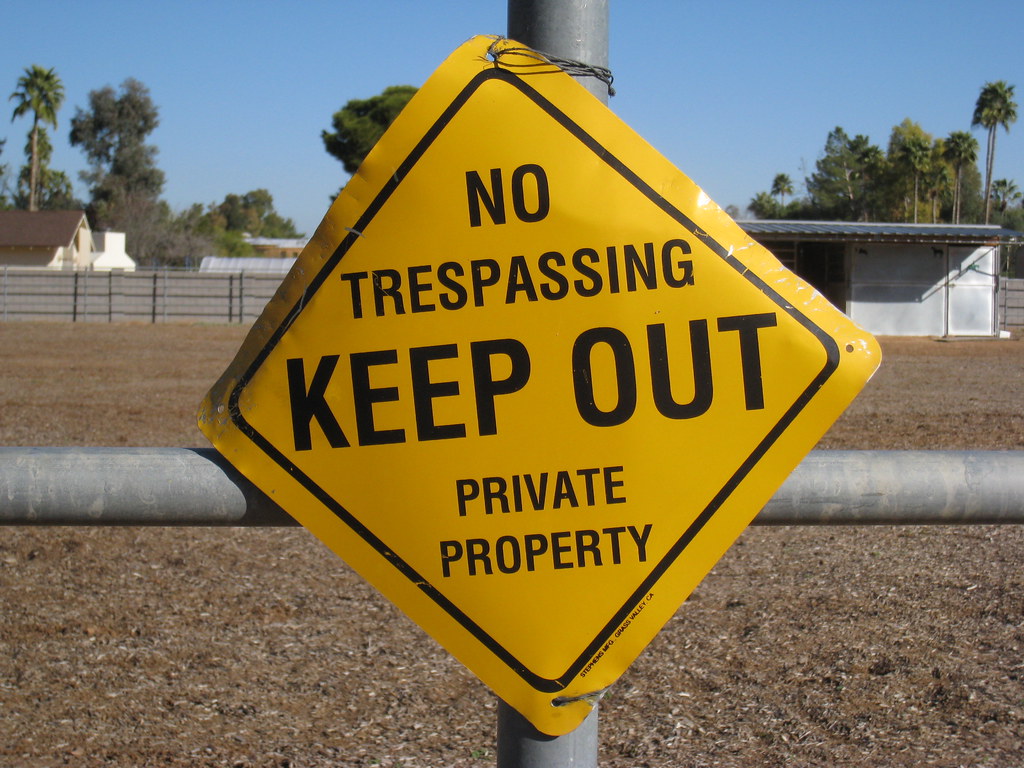Contents of Article
Trespass to Land in Torts| Notes on Law of Torts|

Definition : Trespass to land is the unjustifiable interference with the possession of land. (Winfield)
Two Essentials :
- Invasion of or entry on the land.
- Invasion must be unjustifiable.
- Possession : It is the evidence of ownership and has two ingredients : Animus and Corpus ; Animus is the mental element and corpus is the physical element. The person in possession of land need not be the owner ; he gets the right to quiet and peaceful enjoyment of the property. He has a right to exclude all others. There is trespass if A enters on the land of ‘B’ or remains there or does any act affecting the possession of B, without legal authority. It is not necessary that he must use force and cause damage on the land of B. In fact as chief justice Holt said “Every invasion of private property, be it ever so minute, is trespass”. (Entinck V. Corrington)
- Invasion must be unjustifiable: Every interference which is without any legal authority or justification amounts to trespass, e.g. Placing any chattel on the land of B, planting trees on that land, shooting over that land, causing any noxious substance to cross the land, erecting a building overhanging that land etc, Even the airspace above the land belongs to the possessor of land and any unauthorised invasion is a trespass.
Trespass may be by animals. The owner of the animal is liable.
Trespass ab initio.
Trespass ab intio means trespass from the beginning, This is a circumstance where the entry of a person on the land of another is lawful, but if the person stays and abuses his authority he becomes a trespasser ab intio. It is important that the person must abuse his possession by doing some positive act and not by a mere omission.
i) Six Carpenter’s case: Six carpenters entered an inn (hotel), took bread and wine. They paid the bill. They ordered again and were served. They quarrelled on the rates and then did not pay as per the demand. The hotel owner P sued them for trespass ab initio. Held, not liable. For trespass ab inito, there must be a positive act. Not paying was an omission.
If a carpenter or an electrician lawfully enters to do some repairs but does some positive act (damaging the property, stealing some materials etc., ) he becomes liable for trespass ab initio.
ii) Dais V. Pasmore: In this case, the police entered the premises of P, To arrest P and others. They seized some documents which were relevant for the trial of the arrested person; they also seized other documents which they returned later. It was held that the police officers were liable for trespass ab initio in respect of documents seized and returned. But they were not liable for entry on the premises to arrest P and others.
iii) Chic Fashins V. Jones: The police officers, under a search warrant entered P’s shop to search certain stolen goods. They found none but found certain others which they seized. They had reasonably and erroneously believed that the seized goods were stolen. Held, the seizure was not illegal. The doctrine of trespass ab initio was not raised.
Remedies for Trespass
The Remedies are
- 1. Right of re-entry: The dispossessed person P, may re-enter if that is possible or may enter under the orders of the Court. (Specific Relief Act).
- Action for recovery of land: The dispossessed person may sue for recovery of land; if he extablishes his title and possession, he ir. entitled to recover the land.
- Action for mesne profits: Any profits made or rent collected or benefit made by the person who was on land without legal authority, may be recovered by the plaintiff under Civil ProcedureCode by filing a suit for mesne profits.
- Jus Tertii
Defences for Trespass
The various defences open to an action for trespass to land are briefly as follows:
a) Right by prescription: The defendant must establish his right earned by prescription.
b) Leave and Licence: The entry may be under permission expressly or by implication.
c) Authority of law : The entry may be according to law as in cases of entry for attachment of property under the orders of the ourt.
d) Distress Damage feasant : For cattle trespass, the animal may be detained until compensation is paid by the owner of the animal.
e) Self defence : This is a general defence and must be proved.
f) Re-entry on land: A person who is wrongfully dispossessed may enter peaceably and without using force.
g) Abating a Nuisance: To remove a nuisance, entry on the land is justified.
h) Entry to protect an easementary right.
Jus Terti
This means’ right of third party’. If T is a tenant of P, the plea of T that P is not the owner of that house or that he has no title, is no defence of T. Similarly, in case of Trespass to land, the plea of the trespasser that P has no rights or title will not be allowed. This is a sound rule of procedure before the courts. However in case of ejectment this may be a defence.
In Asher V. Whotlock:’ A’ was in possession of a waste land. B entered the premises to take the waste. B pleaded jus tertii that the title was with a third party but could not establish. Hence B failed.